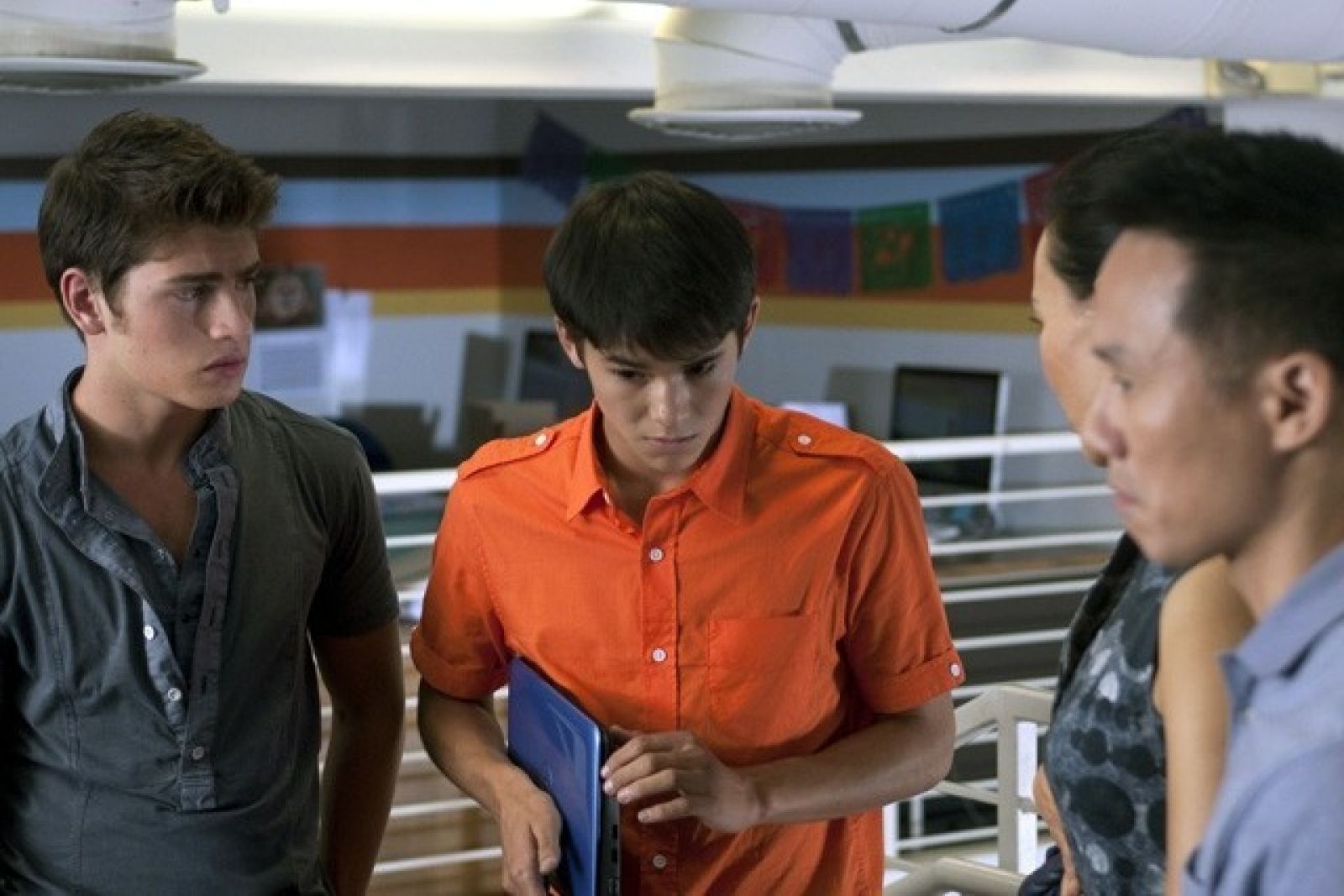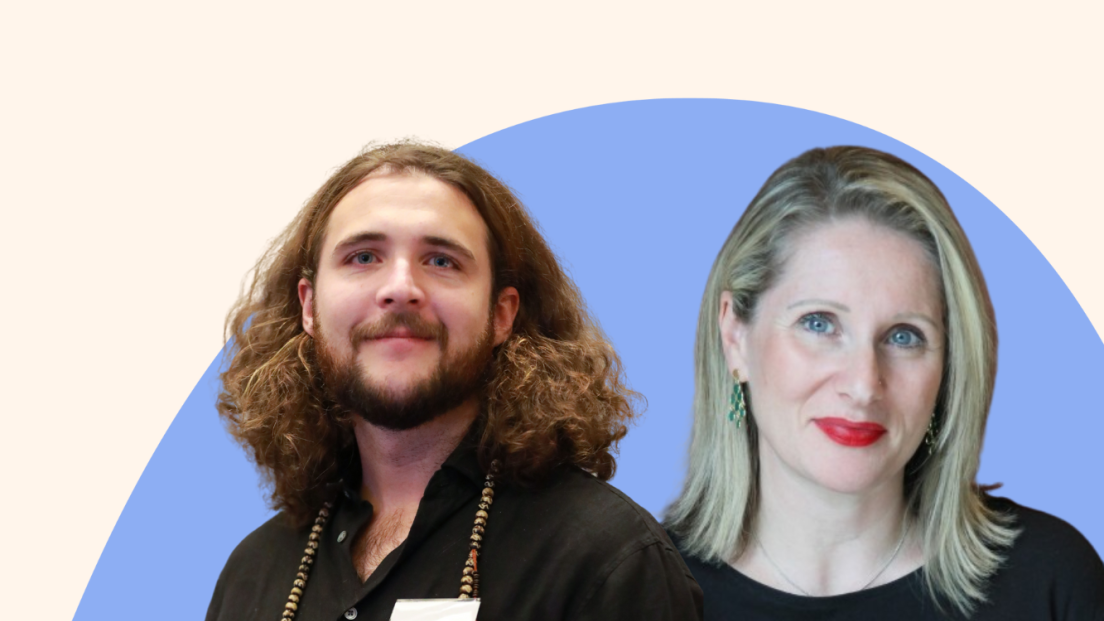Going into this movie, I knew virtually nothing about it. What caught my attention was the synopsis of how the relationship of two brothers, one with Asperger’s Syndrome, would’ve been dealt with. And when I watched this movie, it threw some curveballs I wasn’t expecting. But this is only one of the strengths that White Frog has to offer for the viewer.
The lead character, Nick Young, is played by Booboo Stewart, and he does a good job at playing the Autistic character. He showcases some of the common symptoms of an Aspie person, such as shaking at times, normally wearing one colour (in Nick’s case being blue), slouching his head forward, and sometimes struggling to accept certain things. Booboo even has the voice and mindset of an Aspie-affected person down to a T.
The film begins with Nick waiting outside for his older brother Charlie (Harry Shum, Jr.) as if he were a dog excited over seeing a family member return home. The two brothers share a close relationship, highlighted when they study and play basketball together.
The movie, however, ends up taking a turn for the worst not long after, when older brother Chaz, while trying to make a study group session with his friends, is killed by irresponsible drivers. Almost immediately, things begin to fall apart for the seemingly-perfect family, when the parents Oliver and Irene (B.D. Wong and Joan Chen, respectively) become somewhat lost on where to go from there. In Oliver’s case, he looked at Charlie and thought of him as his favourite son, while Irene has been struggling to cope over the painful loss.
Nick, meanwhile, has trouble trying to handle the death of his brother, going on a small rampage in and out of the house. He even reminisces about the last moment he spent with his older brother, although he continues to ponder over what an inaudible Chaz was trying to tell him. It leads to an ongoing plot point in Nick trying to get into Chaz’s Facebook account with every password he could possibly think of.
Eventually, Nick is thrown a lifeline from one of Chaz’s former friends, Doug, who invites Nick along to the much-hyped study group. While Randy and Ajit are somewhat cold with the idea of Chaz’s Aspie brother joining in on the fun at first, Nick is given a chance to join in, and slowly but surely, he does manage to fit in with the group of friends. Nick even manages to fill a role for Randy, when the two begin to bond over the favourite breakfast Chaz liked to eat, practising how to drive in a parking lot, to even drawing caricatures on the blackboard.
At one point, Nick begins to wonder where Chaz’s money all went. With the assistance of Randy, the two arrive at a community centre, the aptly-named ‘Firehouse’ (take a wild guess why), helmed by Miss Lee. It is there where Nick learns that Chaz was a giving brother, donating $20,000 even after spending 50 hours of community service. Chaz not only cared about his younger Aspie brother, but he was one with a genuine heart of gold.
Unfortunately, Oliver doesn’t like the idea of Nick hanging out with Chaz’s friends, citing them as a bad influence on him. At one point, both he and Irene attempt to rectify this by inviting several children in his year to his birthday party. While it seems like a sound idea, Nick ends up hiding underneath the table like a cat, clearly overwhelmed by the amount of people. And when it becomes clear that Nick wants to break free from his usual routine, this begins to upset Oliver as he thinks that his son is the shadow of Chaz.
And I’m not going to lie, here. While I do like the performances of B.D. Wong and Joan Chen as the parents trying to overcome the loss of their quote-unquote perfect son, I do not like that one of them is playing the overprotective parent, this being B.D. Wong’s Oliver Young. Due to favouring the older son Chaz, Oliver doesn’t treat Nick with an equal or even similar amount of respect, and he begins to drift further away from him when Nick is just trying to fill the major void of his heart that Chaz left.
Joan Chen, on the other hand, plays the more sympathetic Irene Young. While Oliver remains focused on preserving his perfect son’s memories, Irene is the one who still tries to give some love to Nick, even supporting his new friends that he made. She even praises Nick when he buys a shirt that isn’t even remotely blue, treating it as if it were breaking news.
Nick eventually does figure out the password to Chaz’s Facebook account, and plays the video that Chaz was meaning to give to the Firehouse. It is there where he gives an interesting quote: “They say that Aspies can’t communicate… they are wrong. You… you laugh, you sulk, you roll on the floor; you communicate if not only in words, in moods”. Realising that Chaz needs him one more time, an inspired Nick changes to the orange button-up shirt, and returns to the Firehouse to turn in the video.
As the video is playing, however, Miss Lee notices that Nick was mimicking the video itself, and she encourages him to finish the speech for Chaz. This allowed Nick to reveal to the crowd, his new friends, and his parents that he is not a normal son, nor is Chaz, and he cites three words to close out the speech: “Everyone is different”. Being allowed to finish the speech for his brother, this gave Nick the power to be more open with himself, as he begins the new chapter of his life.
White Frog is a film that knows how to be dramatic, laying the cards on the table just minutes into the movie, where it shows us how all members of this family attempt to cope with the death of their son in different ways. While it can be at times, too dramatic for my liking, it is certainly helped with the performances of B.D. Wong and Joan Chen. With that said, Booboo Stewart is the standout of the three, turning in a nicely-done performance. If you are looking for an Autism-related film, then I would recommend this one to you.




